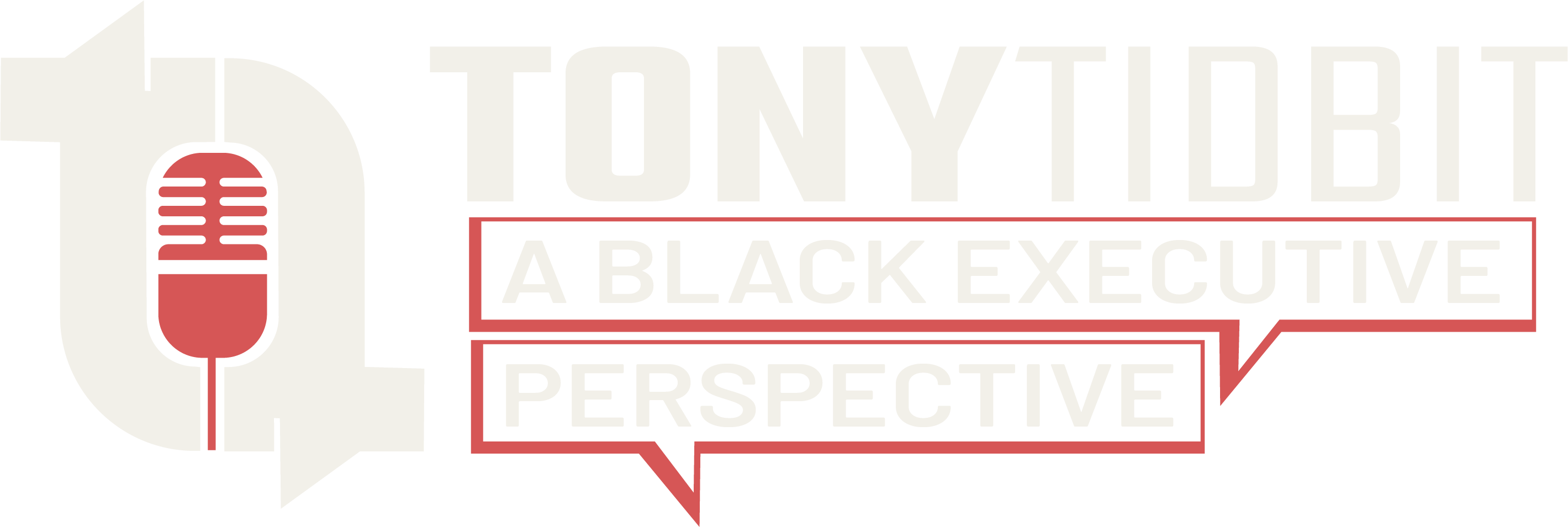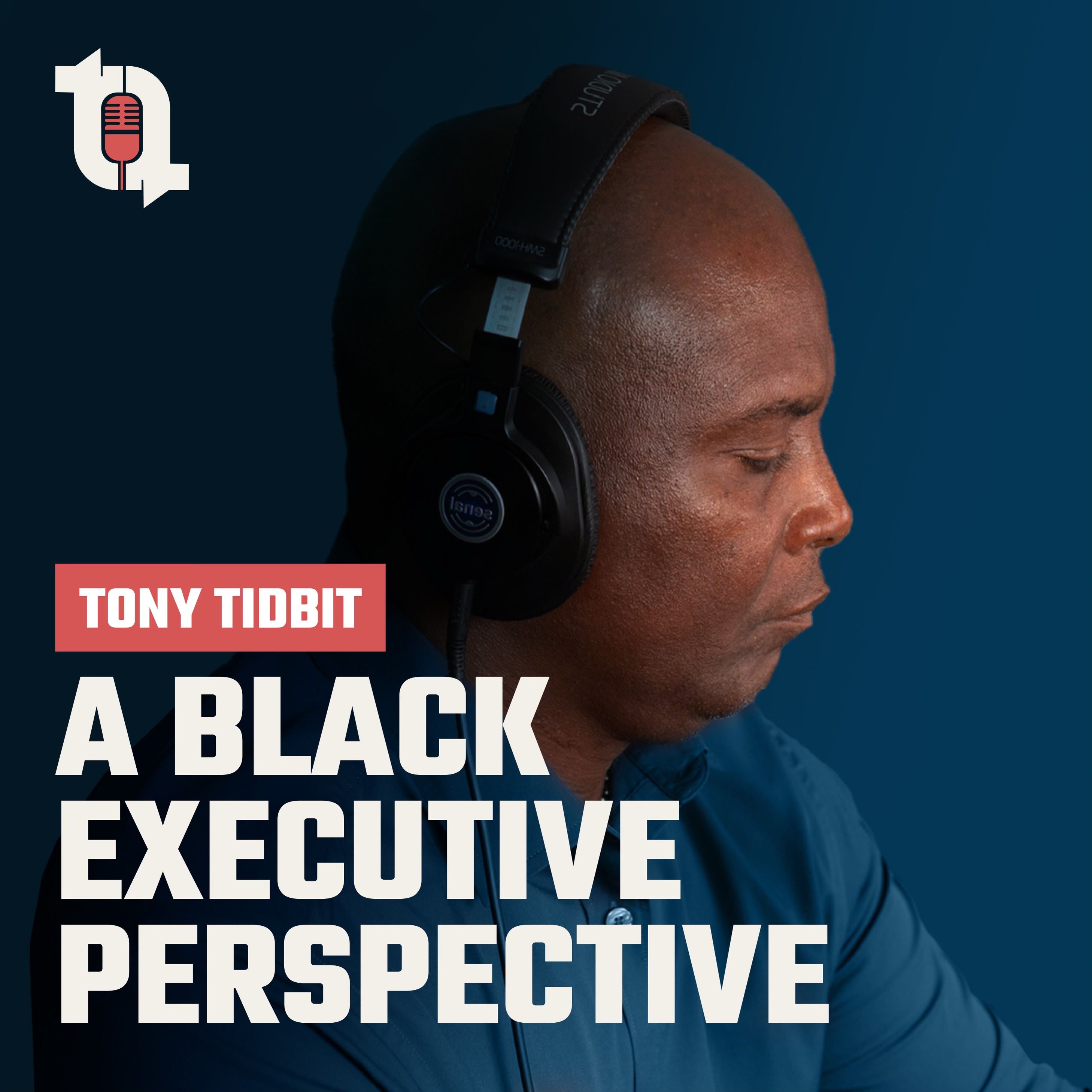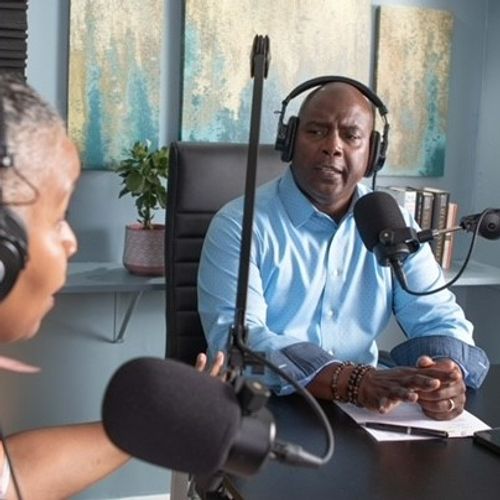The Dark Side of Corporate Leadership: Integrity vs. Profit.
Episode Title:
Episode Audio Link: https://podcast.ablackexec.com/episode/The Dark Side of Corporate Leadership: Integrity vs. Profit.
Episode Video Link:
In this episode of Need to Know, award-winning Dr. Nsenga Burton discusses the importance of integrity in the workplace, analyzing how legal actions by corporations aren't always ethical. She connects this to recent events, including the assassination of UnitedHealthcare's CEO, and highlights the need for humane, moral leadership in corporate policies, especially in the healthcare industry. Dr. Burton emphasizes the value of leadership that prioritizes humanity, provides measurable outcomes, and adapts to changing times. Tune in to understand how to navigate these challenges and promote a compassionate professional environment.
▶︎ In This Episode
00:00: Introduction to Need to Know with Dr. Nsenga Burton
00:19: Integrity in the Workplace
00:35: Case Study: UnitedHealthcare CEO Assassination
01:11: Corporate Policies and Ethical Dilemmas
02:15: The Human Cost of Inhumane Policies
03:06: Leadership and Ethical Responsibility
05:50: Changing Times and Expectations
07:54: Practical Advice for Leaders
09:56: Conclusion and Final Thoughts
🔗 Resources
Links and resources mentioned in this episode:
🔔 Listen and Subscribe
Listen to this episode and subscribe for future updates
subscribe to A Black Executive Perspective podcast on
- YouTube Podcasts
- Apple Podcasts
- Spotify Podcasts
- Amazon Music
- Other platforms or by searching "TonyTidbit"
if you like what we're doing and would like to support us, here's some ways you can help us continue the uncomfortable conversations that drive change
- subscribe to our newsletter
- give us up to a 5 star review on Apple Podcasts
- share an episode with a friend, family member or colleague
🗣️ Follow @ablackexec
follow us across social media @aBlackExec
⭐️ Follow @TonyTidbit
follow Tony across social media @TonyTidbit
This episode was produced by TonyTidbit ™ . Copyright © 2024 A BLACK EXECUTIVE PERSPECTIVE LLC. All rights reserved. No part of this podcast may be reproduced without prior written permission. For permissions, email podcast@ablackexec.com .
Transcript
A Black Executive Perspective now presents Need to Know
2
:with the award winning hyphenated Dr.
3
:Nsenga Burton.
4
:Dr.
5
:Burton.
6
:What do we need to know?
7
:Dr. Nsenga Burton: Good afternoon
and welcome to Need to Know with Dr.
8
:Nsenga Burton.
9
:I am she.
10
:I hope all is well in your world.
11
:Today we're going to talk about integrity
in the workplace and how sometimes
12
:practices that just because they are legal
doesn't mean that they're ethical and that
13
:can lead to some devastating consequences.
14
:Um, I You know, even unintended so before
I even start on this, I know everyone
15
:is caught up in enthralled with the, um,
United healthcare CEOs assassination.
16
:I would say it was an execution and
that the culprit has been picked up.
17
:Um, so this is no way, shape
or form has to do, um, wants to
18
:make light of what happened to,
uh, Brian Thompson is terrible.
19
:What happened to him and
his family, his colleagues.
20
:It's terrible that people are in fear
for their lives and all of the things.
21
:Um, and it's terrible that that happened
to him as he was just going to work.
22
:Right.
23
:Um, so having said that, um, What I'm
talking about today is related, uh, not
24
:to UnitedHealthcare per se, but it's
corporations in general and how, uh, you
25
:have to navigate these kind of spaces
and I have to change with the times.
26
:So, um, you know, there's another
company that I won't name, but following
27
:the execution of Mr Thompson, they
changed their policies on anesthesia.
28
:You know, how they cover it,
so they will only cover it for
29
:a certain number of minutes.
30
:And then after that, it was minutes past,
the patient would be required to pay if
31
:they indeed continued receiving anesthesia
and, you know, anesthesia is given
32
:typically when you're having some type of.
33
:Surgery.
34
:So we were a little bit shocked.
35
:Some people know this because
they have medical issues.
36
:I have medical issues.
37
:Thankfully, I haven't been on
anesthesia in a long time, so
38
:I didn't even know about this.
39
:But, um, you know, I was, you know, people
were shocked when they learned this.
40
:Um, and even though that's something
that you can legally do, that is really
41
:a terrible policy and it shouldn't take,
uh, because it's inhumane, it's inhumane.
42
:Like, you know, if you're,
you, a doctor has said that
43
:you need this service, right?
44
:A surgeon has said that I have to do this.
45
:The surgeon has said you need to be
put under, uh, if it goes longer than
46
:it's supposed to, or you run into
some kind of issue or complication,
47
:you, uh, you shouldn't have the burden
of having to either suffer through
48
:it, because we're learning, um.
49
:with these laws that are impacting women's
bodies that, you know, some doctors are
50
:really afraid of the insurance companies.
51
:They're afraid of the law.
52
:Uh, and so they're letting women bleed
out in cars and parking lots, um,
53
:or, you know, letting them sit for
hours and in some cases days, um, and
54
:either, you know, die or what have you.
55
:So we have to, what I think We should come
out of this case, uh, or this issue, uh,
56
:is that we as leaders in our professions
have to think in a humane and ethical way.
57
:Is it humane to deny people services
that have been prescribed by a doctor?
58
:Is that humane?
59
:You know, I mean, it
has, it happens a lot.
60
:And when I think about this boy,
I'm just trying to figure out,
61
:I mean, I know he's 26, but you
know, I'm old, so he's a boy to me.
62
:Um, but when I think about this young
person who didn't have enough sense
63
:to pack a sandwich, Right, didn't have
enough sense to pack a sandwich, didn't
64
:have enough sense to be in Pennsylvania
and go to Amish country where he could
65
:have just lived forever, and nobody
would have known he was there, except
66
:if there was a basketball tournament
or something happened and then he
67
:might be spotted, but that was like,
gonna be later in the year, summer.
68
:Um, but you know, in Pennsylvania, doesn't
have enough sense to go there if he's
69
:gonna stay in the, in the, uh, in the
country or starve his way to Canada.
70
:Right, the nearest crossing border
crossing, but, um, I'm trying to figure
71
:out and I'm looking forward to finding
out if this is indeed the person what
72
:it was that motivated this person to do
this to commit this heinous crime because
73
:those of us who have been dealing with.
74
:Hospitals and doctors for an inordinated
amount of time, you know, it could
75
:be us, it could be your parents,
it could be friends, whatever,
76
:know that there are many, many
challenges with the insurance agency.
77
:So I can't even imagine what
at twenty six he has endured
78
:that would make him do this.
79
:Relative to all the horror stories that
we hear about as full functioning adults,
80
:um, you know, and all the go fund me's
we see, um, that are related to people's
81
:medical issues because they're bankrupting
them, um, you know, and a lot of issues
82
:and these people who have insurance.
83
:So, uh, I think it's an opportunity for
us to really think about as leaders.
84
:What does it look like to operate
with a very specific ethos?
85
:And that is elevating people's humanity
to the very top, particularly when you
86
:are in such close proximity to it, right?
87
:When you have, um, the tools and
resources to either help someone live or
88
:to make sure that they succumb, right?
89
:If they don't have access
to those tools or resources.
90
:So what does leadership look like?
91
:When you have the opportunity to impact
people's lives on such a specific level.
92
:Right?
93
:And I would just want to say that we
need to know that times are changing.
94
:People are not going to accept and
deal with what they were accepting
95
:and dealing with previously.
96
:You're going to see this
in this next election.
97
:You know, there is fear that they're
going to get away with so much stuff.
98
:People are not going to accept what
they accepted in twenty twenty.
99
:All right.
100
:Um, you're going to see
this in your workplaces.
101
:You know, um, if we have another
pandemic, people are not going
102
:to accept what they accepted
previously, this next election, U.
103
:S.
104
:presidential election, Democrats are
not going to accept what they accept.
105
:Uh, Previously, it's not going to happen.
106
:So at some point you have to change
and you have to, uh, change with the
107
:times and you can either lead, be a real
leader and say, listen, we've been doing
108
:this long enough and no longer serves
us no longer serves our population.
109
:We need to change our policies or
the way we deal with this, or we need
110
:to have, you know, uh, uh, something
in place to deal with these types of
111
:issues because it is no longer serving
our, our, uh, patients or clients.
112
:Or you can be dragged there.
113
:Because of a P.
114
:R.
115
:crisis crisis communications
is what we call it.
116
:So a P.
117
:R.
118
:crisis where you're like, oh,
my God, this is happening.
119
:What are our policies?
120
:Oh, my goodness.
121
:Look at all this stuff on social
media about how terrible we are.
122
:Let's start to clean this up.
123
:That should not be the driver.
124
:The driver should start from the top.
125
:It should be with the company and
people should be made aware of
126
:not only what you're trying to do,
um, but with what you're What the
127
:measurable outcomes will be right?
128
:So, if we make this policy change,
we hope to save, you know, hope to
129
:increase the number of lives that
we save by 10 percent next year.
130
:Right?
131
:So that's also like, not only being
ethical, but also being accountable
132
:and really making yourself when
you have measurable outcomes.
133
:It makes you really think about.
134
:What really needs to happen in order
to create the change that you seek.
135
:So on need to know today It's
there's value in packing a lunch
136
:When you need to get somewhere quickly
and you don't have time to stop and
137
:go into a fast food restaurant And
then I'm like, why are you mad at
138
:the health care company when you eat
McDonald's, but that's another story
139
:So need to know is pack a lunch
that's number one number two Um
140
:Know your environment and where
you are at all times, right?
141
:And then number three to really lead
and think from a perspective of how
142
:do I help the most people possible?
143
:When you are making billions
in profits, you can afford to
144
:help the most people possible.
145
:You're not going to always get it right.
146
:You can't save everyone.
147
:But when people are going through hard
times and medical issues are hard,
148
:especially when you're looking at
something that can be critical or that
149
:is critical or could be fatal, it's hard.
150
:It's hard to stress on your
families or what have you.
151
:The last thing that people should be
having to think about is, Lord, I hope
152
:this surgeon finishes this surgery on time
so I don't wake up in the middle of it
153
:or, oh my gosh, If they don't
finish on time, I'm going to have
154
:this big, uh, balloon payment
waiting for me after I heal.
155
:So if I, if, if the surgery, if I survived
the surgery, the stress of having to
156
:pay this bill or having it hanging
over my head, uh, will kill me instead.
157
:Right?
158
:Um, we should not be doing that in 2024.
159
:We should be better than that.
160
:And I do believe that
we are better than that.
161
:I know 50 percent of us are not, but the
other 50 percent of us are, so we need the
162
:other 50 percent to use your influence.
163
:And, uh, to really ask our leaders,
particularly our leaders of multi billion
164
:dollar corporations, um, to do better and
to be better and to make better decisions.
165
:Um, you know, so that we
can avoid tragedies, further
166
:tragedies, uh, and just.
167
:Just violence that is unnecessary.
168
:Violence is never necessary,
but certainly in this instance.
169
:Um, so I just wanted
to put that out there.
170
:Uh, I think it's terrible again.
171
:Don't chop this up and pretend
like I said that it was okay.
172
:It's not.
173
:It's horrible.
174
:We should not be out here
assassinating, executing people.
175
:Period.
176
:Period.
177
:And it includes the incoming president.
178
:Period.
179
:Uh, but we also have to learn how
to treat people, um, with empathy,
180
:with kindness and with integrity.
181
:Uh, so that we can avoid, uh, these
types of instances, um, in the future.
182
:And that is Need to Know with Dr.
183
:Nsenga and tune in to A Black
Executive Perspective Podcast next
184
:week, where we'll have more for you.
185
:All right.
186
:Have a wonderful day.
187
:BEP Narrator: A Black
Executive Perspective.





